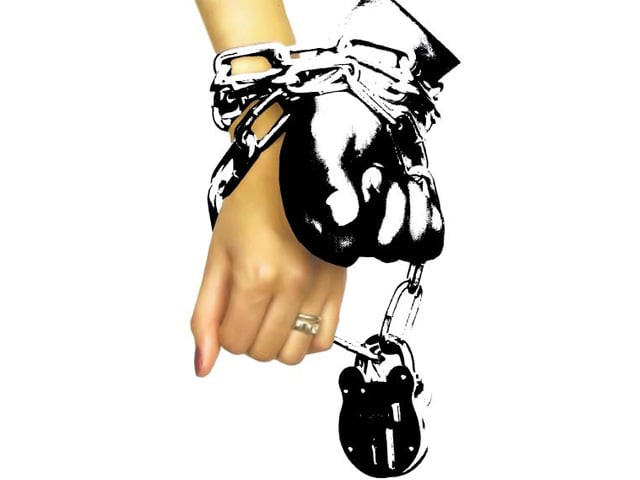Reforming marriage laws: ‘Rs1,000 fine not enough to punish underage nikahs’
Workshop held to discuss psychological and physical effects on girls.

Reforming marriage laws: ‘Rs1,000 fine not enough to punish underage nikahs’
A month in jail and a fine of only Rs1,000 is the punishment for someone who solemnises underage marriages but, according to experts, this is simply not enough to tackle the problem.
At a workshop on Saturday, speakers agreed that marriage laws need to be reformed. The event was organised to acquaint journalists with the different aspects of underage marriages - psychological, physical and social - particularly for women.
“Physically, the girls are not prepared for pregnancies and childbirth, the newborns are frequently sick or weak and in some instances congenital illnesses and disabilities also occur,” said Rafia Bangash, a lawyer for Abad Legal Aid Centre. “To begin with, early marriage inhibits the physical and mental development of those married, especially girls.”
A lack of education, myths, misconceptions, economic stresses, financial gains, religious beliefs and retrogressive traditions act propel people to marry their children off. “Female children are vulnerable and submissive. They can easily be subjected to domestic violence. Moreover, the physical and mental stress of bearing a child in childhood cripples their health.”
Unfortunately, underage girls marrying old men are the most frequent cases reported in the media, she said. “In most cases, the child is returned to the parents after police or court intervention and the offenders are punished. But is that punishment sufficient?”
Under Pakistani law, an offender who fails to register a marriage with a nikah registrar can be punished for a term of up to three months in prison. However, someone who unlawfully solemnises a wedding, of a girl below 16 years of age, is only imprisoned for a month and fined Rs1,000.
According to the Child Marriage Restraint Act 1929, child marriage is not a cognisable offence, which means that the police cannot intervene directly. “People take help from the Shariat law that allows the nikah of girls below the age of 16,” Advocate Suhail Dars explained.
He said that people hide behind the religious provision and put the rukhsati on hold. They wait until the girl reaches the permissible age and then send her off to the new house. “In such cases, the girls, who are entered into marriage without being sent off to their groom’s house, are not left with the option to choose their life partner.”
Pakistan is a signatory to the UN convention on the rights of children, which refers to early marriage as the marriage of people less than 18 years of age. Yet, there is no implementation. “The relevant laws should be legislated to increase the punishment of the offenders, including those who marry underage girls and those who solemnise it. One month in jail is itself a mockery as the legal proceedings to convict an accused last longer than it,” Bangash pointed out.
She recommended setting up community-based committees at the union council levels to monitor the implementation of marriage laws. “The government should raise awareness on the issue and engage people. It should specifically focus on rural areas, where the incidence of such marriages is higher.”
Published in The Express Tribune, June 27th, 2011.


















COMMENTS
Comments are moderated and generally will be posted if they are on-topic and not abusive.
For more information, please see our Comments FAQ